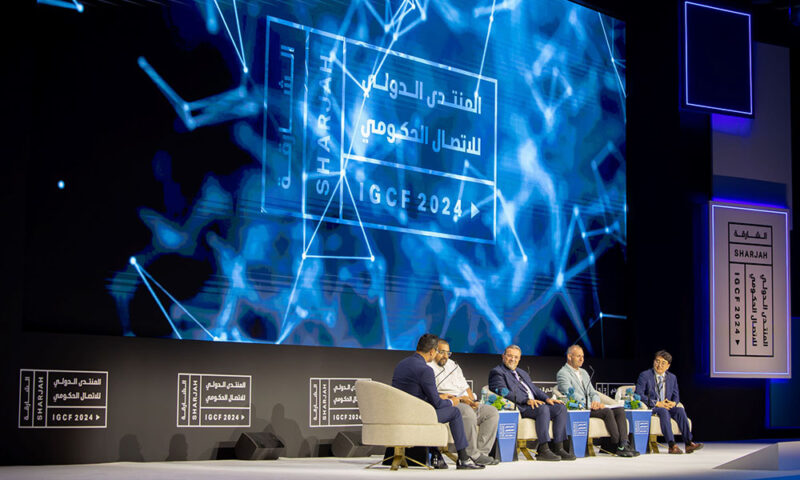
Deepfakes will cost the world over US$10tn by 2025
The fear of deepfakes – images, videos, or audio edited or generated using artificial intelligence (AI) tools – has limited people’s confidence in the authenticity of content. According to recent reports, deepfakes will cost the world over US$10 trillion by 2025, creating challenges for several institutions, including hospitals and governments.
On day two of the 13th International Government Communication Forum (IGCF 2024), held in Sharjah, UAE, a power-packed session on the topic ‘Why Resilient Governments are Building Protective Shields with Artificial Intelligence’ was held and highlighted what governments can do to raise awareness and train people to avoid deepfakes.
The panel included Hector Monsegur, founder of a cybersecurity startup, security researcher and Director of Research; Nader Al Gazal, academic and expert on AI and Digital Transformation; Alan Smithson, Co-Founder of Metaverse (Facebook); and Dr Inhyok Cha, Professor at Gwangju Institute for Science and Technology and Deputy President for Global Cooperation (South Korea). The session was moderated by Samy Kasmi, a media professional at Sky News Arabia.
Technology paradox
The panellists stressed that deepfakes are an interesting phenomenon as anyone can go online and build a deepfake for free. “The paradox of technology is that it is neither good nor bad. It is how you use it. Just because we can create a tool does not mean that it should be used for nefarious purposes. Governments are responsible for ensuring that we use this technology for good,” Smithson said.
“Technology like deepfakes enable this and because of its accessibility. It allows millions of people to create their own stories in ways that have never been done before. This is where the question of ethics comes into play. Governments must invest heavily in raising awareness and training people to avoid deepfakes,” remarked Dr Cha.
Effective dealing
“Deepfakes are a very serious matter and must be dealt with effectively; but we can also leverage AI and virtual assistants to help regulate deep fakes despite their rapid growth,” stressed Al Gazal.
Monsegur highlighted that, currently, there are no tools available that can help detect and mitigate a deepfake attack in real time. “At some point, everyone will be breached by deepfakes. But if you set mitigating controls in place prior to the breach, you are going to limit the damage,” he said.
Smithson said that the US, EU and China have started to regulate AI. Recently, California lawmakers approved legislation to ban deepfakes to protect workers and regulate AI.
